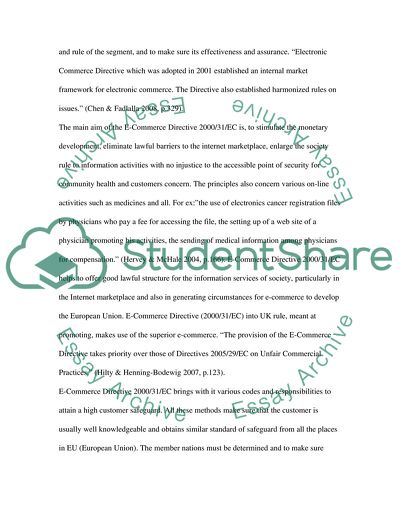Cite this document
(“E-Commerce Directive 2000/31/EC Article Example | Topics and Well Written Essays - 2500 words”, n.d.)
E-Commerce Directive 2000/31/EC Article Example | Topics and Well Written Essays - 2500 words. Retrieved from https://studentshare.org/e-commerce/1735547-e-commercr-law
E-Commerce Directive 2000/31/EC Article Example | Topics and Well Written Essays - 2500 words. Retrieved from https://studentshare.org/e-commerce/1735547-e-commercr-law
(E-Commerce Directive 2000/31/EC Article Example | Topics and Well Written Essays - 2500 Words)
E-Commerce Directive 2000/31/EC Article Example | Topics and Well Written Essays - 2500 Words. https://studentshare.org/e-commerce/1735547-e-commercr-law.
E-Commerce Directive 2000/31/EC Article Example | Topics and Well Written Essays - 2500 Words. https://studentshare.org/e-commerce/1735547-e-commercr-law.
“E-Commerce Directive 2000/31/EC Article Example | Topics and Well Written Essays - 2500 Words”, n.d. https://studentshare.org/e-commerce/1735547-e-commercr-law.


